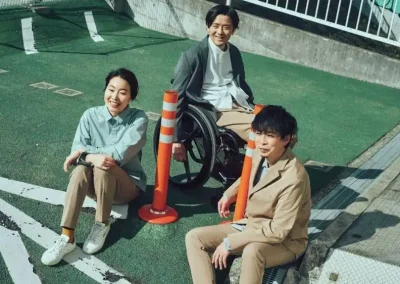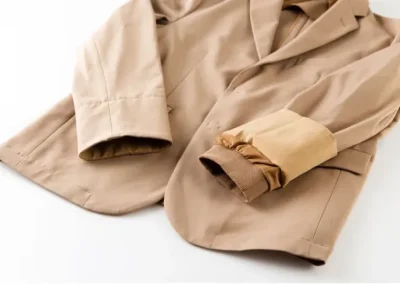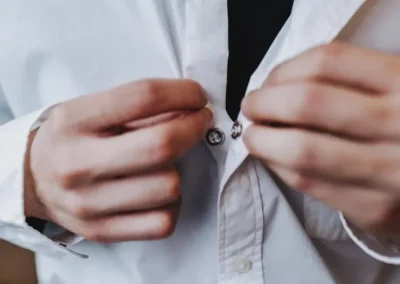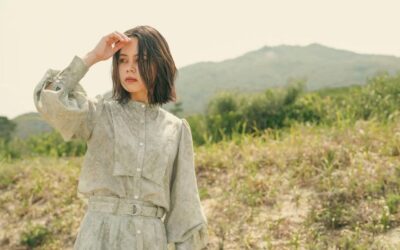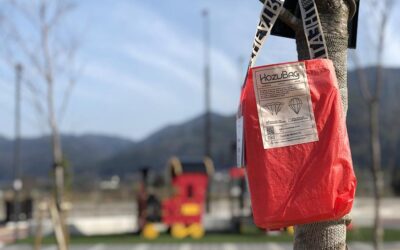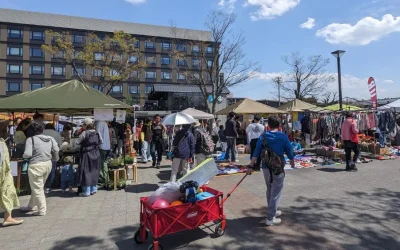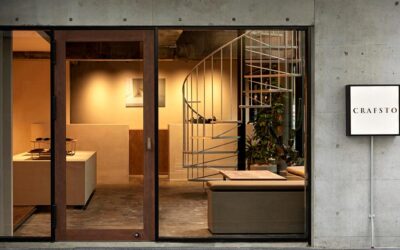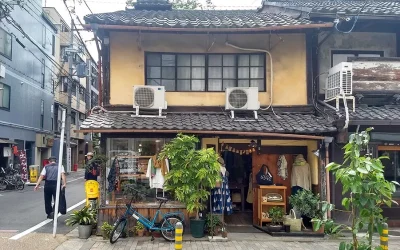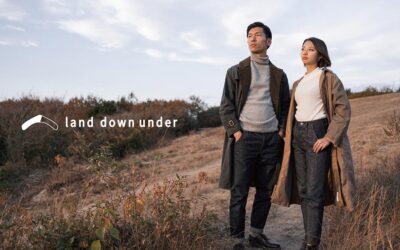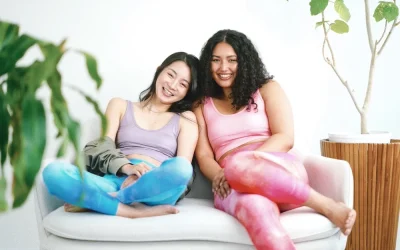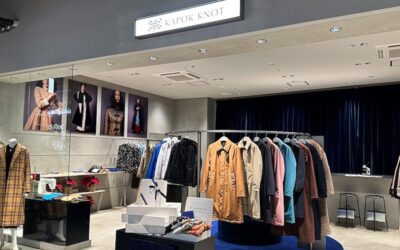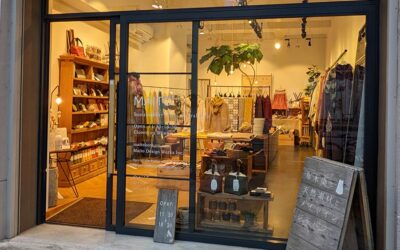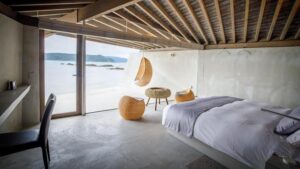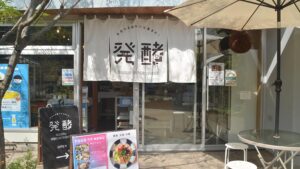A fashion brand that makes fashion inclusive for all
In recent years, initiatives related to diversity have been under active discussion worldwide. In the area of design, there is a search for ways to make design easy to use for people of various backgrounds.
For example, universal design is a method of designing that is easy for everyone to use, regardless of disability, age or nationality. These include daily goods such as a shampoo bottle with ridges on the side that let you know what is inside just by touching it and large light switches that can be turned on and off with a light touch.
Also, inclusive design has been attracting attention in recent years. While designers mainly carry out the method of universal design, in inclusive design, not only designers but also people who have been excluded from society (extreme users) get involved in designing together. From the beginning of the process, listening to the extreme users’ perceptions, opinions and emotions and creating products that make the most of their unique ideas are valued.
From feeling uncomfortable with fashion to creating a brand
Misaki Tanaka, the representative of the apparel brand “SOLIT! ,” has been working to solve various social problems, including disaster prevention. She revealed that, before the birth of her apparel brand “SOLIT!,” she had an uneasy feeling towards fashion itself.
“Because of my short stature and oversized body, I’ve had the experience of not having enough clothes to wear and having to force myself to wear them in Japan. After going into the fitting room and having the experience of not being able to wear the clothes I wanted, I often said things like, ‘I have to lose weight,’ or ‘I’m ugly,’ because I couldn’t fit into them. I’ve been self-denying myself. Fashion, which originally makes us feel free and excited, eventually hurt me.”
She also met people of different nationalities, faiths, sexualities, disabilities and body types at her graduate school and in working with social issues abroad. Through these experiences, Tanaka felt that, like her, there were people who did not enjoy fashion due to differences in ability, gender, faith or body type.
Tanaka felt uncomfortable with such circumstances and thought that despite a large number of clothes being produced and discarded in the world, there were no desirable clothing options for her. After that, in September 2020, Tanaka launched SOLIT Co., Ltd. and the apparel brand “SOLIT!” to make it possible for various people to choose comfortable clothes. The brand name “SOLIT” is a slang term for ”wonderful.” It comes from the desire to create a society where people can say to each other they are wonderful just as they are, regardless of attributes or categories.
The members involved in SOLIT! have occupations such as designers, marketers, medical and welfare workers, with various backgrounds such as nationality, age, sexuality and disability. Currently, about 40 members are operating mainly online.
Comfortable style for everyone through inclusive design
SOLIT! uses the inclusive design method to think about the appearance of the product with the members and produce only what is desired for the people who need it. Specifically, from the planning stage, they plan and develop together with people with various backgrounds. They manufacture the products that are needed as much as they receive requests. In addition, customers can adjust the size, length and specifications for each part according to their preferences, body shape and disability characteristics. By offering clothing that suits each customer, prolongation of product life can also be expected.
“At SOLIT!, we want to create something that major brands do not offer. For the first products, we decided to make jackets, pants and shirts with buttons. The design allows customers to choose the size, length and specifications for each part, such as jackets and pants, and customize them.
Since the size and shape of each person’s body is different, many people cannot wear uniform sizes that are generally sold, or have no choice but to wear them. Moreover, there is the problem that the cuffs tend to get dirty because wheelchair users turn the wheels when moving. As a solution to this problem, we place importance on designing from the customers’ perspective, such as customizing the sleeves with ribs to make it easier to roll them up.”
One size does not fit all
“Actually, buyers have said, ‘Now I don’t have to give up on fashion anymore’ or ‘I can finally go to an interview wearing this.’ Fashion is not only just a part of self-expression but assistance for social participation. Also, I think having more clothes options will help you accept yourself. People with limited range of motion or paralysis in their limbs often choose casual clothing with a loose silhouette, such as hoodies and sweatshirts. However, some of them said that it was difficult to go to the office, restaurants and events in such casual clothes.
In addition, we received comments saying there were no clothes when they wanted to be fashionable. So, we want to continue devising product development and delivering our items to everyone so that we can solve such problems even a little and they can try various things.”
“Democratization of fashion” for all-inclusive world
For a world where diverse people can live comfortably, SOLIT collaborates with not only fashion brands but also hospitals and companies to share data and knowledge. Recently, as the first step of such efforts, it has started collaborating with hospitals and research institutes to identify issues and plan solutions. They now develop new, more fashionable hospital clothes to wear during hospitalization and after hospital discharge.
“I had the impression that the management side provided the patients with what they wanted them to wear. For example, conventional hospital uniforms use colored fabrics that make it easy to see patients’ bleeding, and cuffs and shapes are easier to assist them and collect blood. However, through a survey, patients responded, ‘I don’t want to wear it,’ and ‘I don’t like the design that makes it clear that I’m a patient.’
In addition, even from the perspectives of a medical and welfare worker, we learned that there are many problems related to clothes, such as items difficult to take off or easy to expose. At SOLIT!, we interview patients, their families, medical and welfare workers about what types of clothes they really want and design hospital clothes together. Furthermore, we are considering designs that people will want to continue wearing at home and around town even after they leave the hospital.”
“In terms of functionality, we have devised things such as making it easier to put on and take off by using a magnet-type button. We also changed the color so that even people with dementia can find the starting line of pockets and sleeves. If you change your clothes, you will have more opportunities to go out and participate in society. We want to do more than just solve the problems in medical and welfare sites.”
What we wear can empower us to co-exist
These activities are often regarded as “handicapped fashion.” However, Tanaka says that she wants to consider not only “people with disabilities” but also various people and the earth.
“Typical apparel brands have websites with terms like ‘women’ and ‘men.’ SOLIT! does not include information about sexuality, gender or fixed standards, such as categories and size lists. We aim to democratize fashion by respecting the autonomy of the consumer, such as customizing what suits them, rather than forcing people to bend their body shape and sense of values to match fashion.”
Tanaka wants to approach various social issues through the method of inclusive design in the future.
“Through SOLIT!, I want to support an all-inclusive society that considers diverse people and the global environment. We cannot do this alone. We would like to collaborate with various companies, local governments, NGOs and NPOs not only in fashion but also in the medical and welfare fields, from upstream to downstream and in the circulation of fashion.”
Originally published on IDEAS FOR GOOD.

